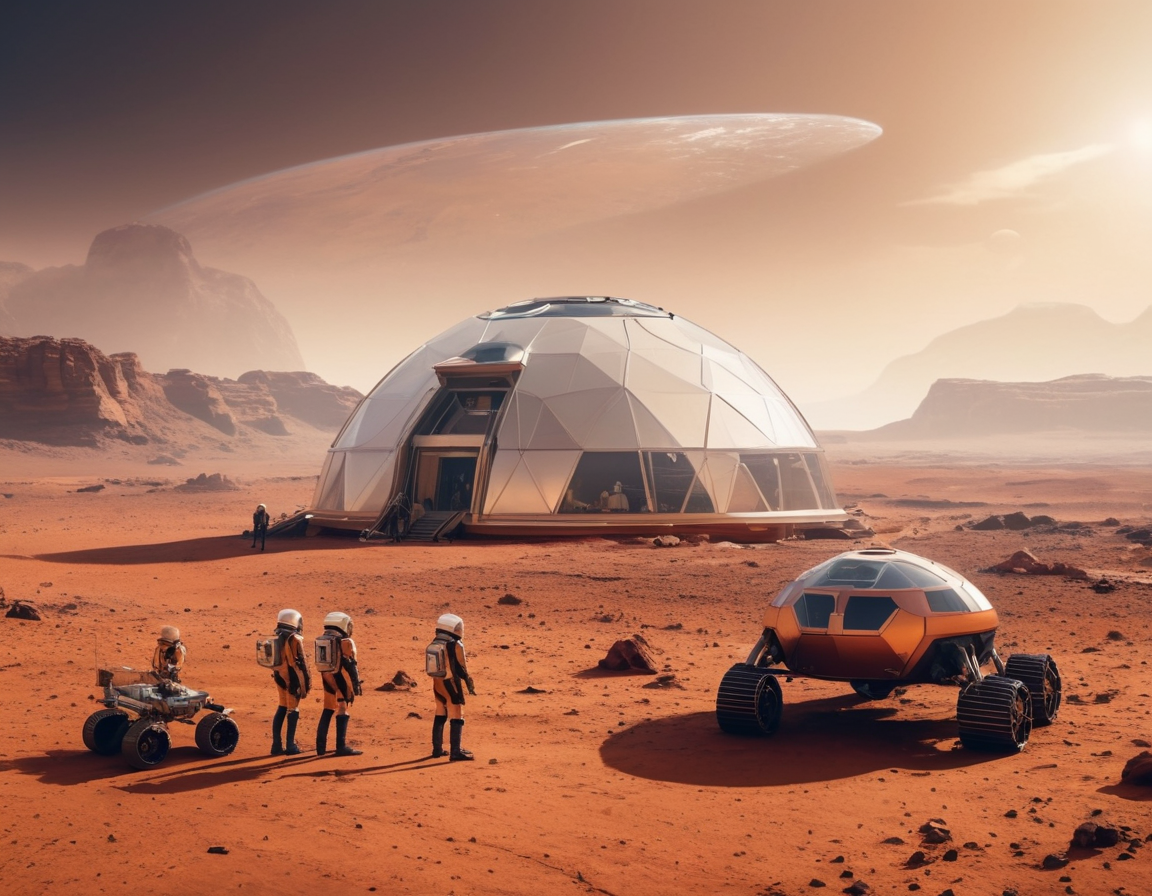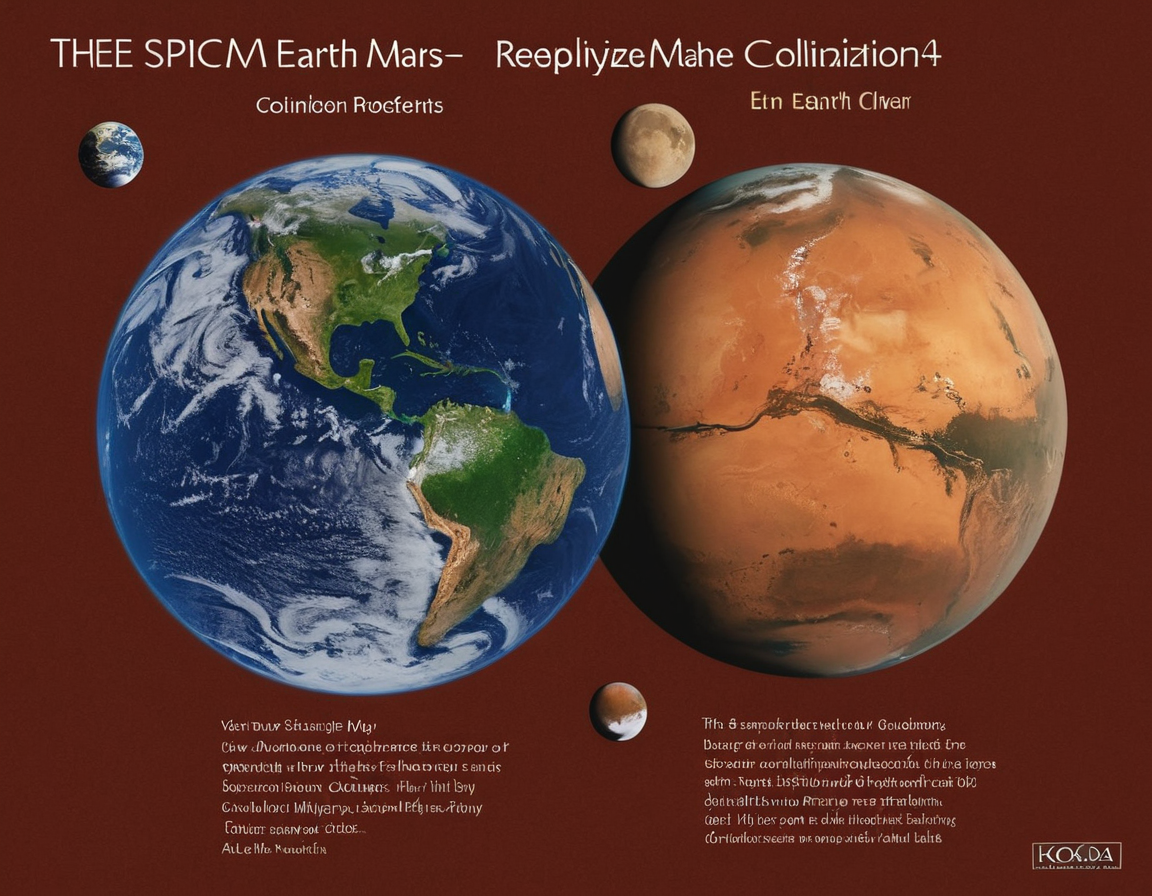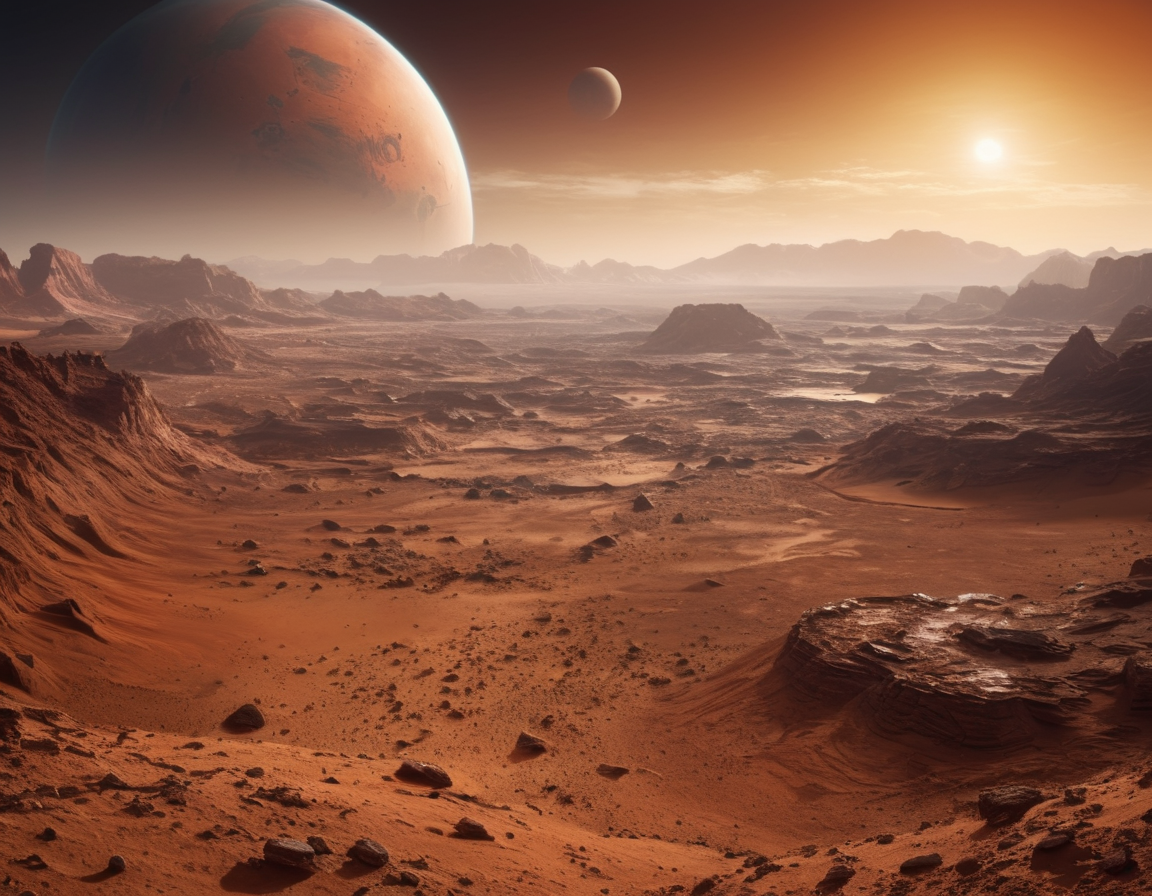Mars Colonialization: Mankind’s Next Giant Leap
Mars Colonization: Vision of a New World
Mankind has always been intrigued by the stars, with Mars being our closest aspirational step in becoming a multi-planetary species.  The vision for colonizing Mars has been fueled both by scientific discovery and cultural narratives, suggesting that human survival may one day depend on our ability to adapt to extraterrestrial environments.
The vision for colonizing Mars has been fueled both by scientific discovery and cultural narratives, suggesting that human survival may one day depend on our ability to adapt to extraterrestrial environments.
Why Mars?
Mars, the red planet, has been the focal point of numerous robotic missions, each revealing more about its potentially habitable past. Its proximity and similarities to Earth make it a prime candidate for colonization. 
The Challenges of Colonization
Colonizing Mars is no simple feat; it presents a myriad of challenges. Harsh temperatures, low gravity, and high radiation levels mean that our current technologies need significant advancements to make Mars habitable for humans. Moreover, the psychological impact of long-duration space travel and isolation on colonists is a subject of ongoing research.
Terraforming Mars
The concept of terraforming—or making an alien planet more Earth-like—has been a topic of scientific debate.  Ideas range from the realistic, like building sealed habitats, to the more ambitious, such as warming the Martian climate to support liquid water and, eventually, life.
Ideas range from the realistic, like building sealed habitats, to the more ambitious, such as warming the Martian climate to support liquid water and, eventually, life.
The Ethics and Logistics of Mars Colonization
While the technological hurdles are immense, the ethical and logistical considerations are equally daunting. Who will govern a Martian colony? How will resources be allocated? These are just some of the questions that need to be answered as we take our first steps beyond Earth.
Conclusion: A Future Among the Stars
The dream of Mars colonization inspires imaginations and drives innovation. It might be decades before we see a self-sustaining colony on Mars, but the pursuit of this dream could yield technologies and understandings that change the way we live on Earth.  The journey to Mars is more than a mission; it’s a leap towards a multi-planetary future for humanity.
The journey to Mars is more than a mission; it’s a leap towards a multi-planetary future for humanity.






